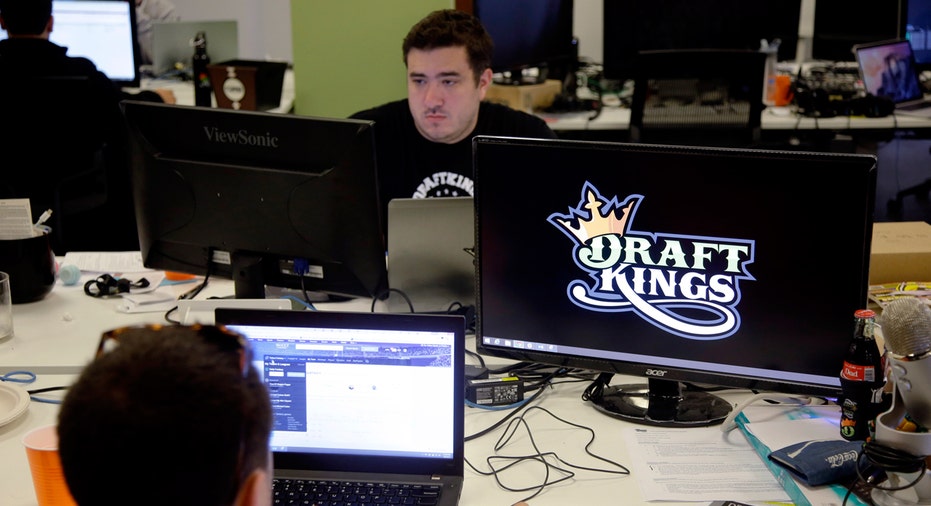U.S. to seek to block DraftKings, FanDuel fantasy sports merger

The U.S. Federal Trade Commission said on Monday it will seek to stop the merger of DraftKings and FanDuel, because the combined company would control more than 90 percent of the U.S. market for paid daily fantasy sports contests.
The FTC, along with the attorneys general of California and the District of Columbia, will file a complaint in federal district court seeking a preliminary injunction to block the deal, the antitrust regulator said.
The companies said in a joint statement that they were considering their legal options. "We are disappointed by this decision and continue to believe that a merger is in the best interests of our players, our companies, our employees and the fantasy sports industry," DraftKings Chief Executive Jason Robins and his FanDuel counterpart, Nigel Eccles, said in the statement.
This is the latest setback for two companies, which have faced regulatory challenges in several states. They announced the deal in November 2016 as a merger of equals that would cut their legal bills.
Between them, the two companies have 95 percent of daily fantasy sports, according to data from Eilers and Krejcik Gaming LLC. DraftKings and FanDuel have argued that they compete against larger, more powerful companies in the broader fantasy sports business, like ESPN and Yahoo.
"This merger would deprive customers of the substantial benefits of direct competition between DraftKings and FanDuel," said Tad Lipsky, acting director of the FTC’s Bureau of Competition.
The FTC will ask for the preliminary injunction to prevent the companies from closing the deal while it proceeds with an internal review to determine if the merger is legal under antitrust law.
In practice, if companies are slapped with a preliminary injunction, they normally terminate a merger because deals cannot be held together during the lengthy internal process.
The FTC has won a long list of court fights to stop deals of all sizes in recent years. Most notably, the agency stopped food distribution giant Sysco Corp from buying US Foods Inc and prevented office supplies retailer Staples Inc from buying Office Depot Inc.
Modern fantasy sports started in 1980 and have mushroomed online. Participants typically create teams that span an entire season in professional sports, including American football, baseball, basketball and hockey.
Daily fantasy sports, a turbocharged version of the season-long game, have developed over the past decade into a multibillion-dollar industry.
Participants draft teams for a single game, enabling fans to spend money on contests with a frequency critics compare to sports betting.
FanDuel has paid contests in 39 states while DraftKings is in 40 where successful players win money.
The companies have a history of aggressive advertising as they have battled for market share. They cut ad spending significantly in 2016 and said the combined company could again expand spending on advertising and customer acquisition.
The tie-up would reduce costs as both companies separately fund legal defenses and lobbying for legislation to authorize fantasy sports in states that have declared it illegal. Without a merger, the companies may have to go back to outspending each other to win customers.
New York's Eric Schneiderman was one of several state attorneys general who cracked down on the industry in 2015. New York settled for $12 million and changes in how the companies market their games, including disclosures about expected winnings.
FanDuel's investors include KKR, Shamrock Capital, Comcast Ventures, NBC Sports and Google Capital. (Reporting by Diane Bartz and Liana Baker; Writing by Washington Newsroom; Editing by Steve Orlofsky)



















